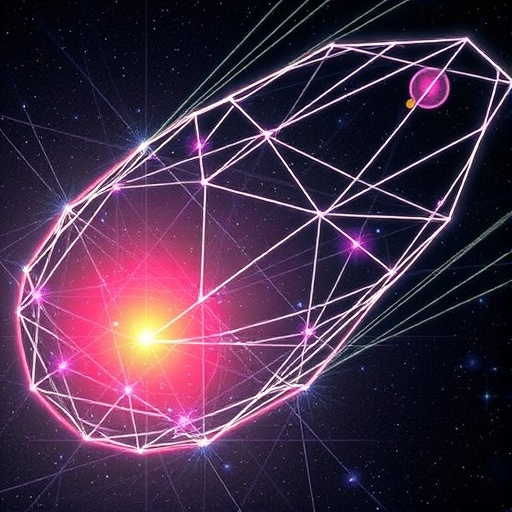Approximately half of the Universe’s dark matter resides in collapsed halos; significantly less than half of the baryonic matter (protons and neutrons) remains confined to halos. A small fraction of baryons are in stars and the interstellar medium within galaxies. The majority are diffuse (<10−3 cm−3) and ionized (neutral fraction <10−4), located in the intergalactic medium (IGM) and in the halos of galaxy clusters, groups and galaxies. This diffuse ionized gas is notoriously difficult to measure, but has wide implications for galaxy formation, astrophysical feedback and precision cosmology. Recently, the dispersion of extragalactic fast radio bursts (FRBs) has been used to measure the total content of cosmic baryons. Here we present a large cosmological sample of FRB sources localized to their host galaxies. We have robustly partitioned the missing baryons into the IGM, galaxy clusters and galaxies, providing a late-Universe measurement of the cosmic baryon abundance, \({\varOmega }_{{\mathrm{b}}}{h}_{70}=0.05{1}_{-0.006}^{+0.006}\), where Ωb is the baryon density parameter and h70 is the scaled Hubble constant. Our results indicate efficient feedback processes that can deplete galaxy halos and enrich the IGM (total baryon fraction in the IGM is \({f}_{{\rm{IGM}}}=0.7{6}_{-0.11}^{+0.10}\)), agreeing with the baryon-rich cosmic web scenario seen in cosmological simulations. Our results may reduce the ‘S8 tension’ in cosmology, as strong feedback leads to suppression of the matter power spectrum.
Connor, L., Ravi, V., Sharma, K. et al. A gas-rich cosmic web revealed by the partitioning of the missing baryons.
Nat Astron (2025).
bu içeriği en az 2500 kelime olacak şekilde ve alt başlıklar ve madde içermiyecek şekilde ünlü bir science magazine için İngilizce olarak yeniden yaz. Teknik açıklamalar içersin ve viral olacak şekilde İngilizce yaz. Haber dışında başka bir şey içermesin. Haber içerisinde en az 14 paragraf ve her bir paragrafta da en az 80 kelime olsun. Cevapta sadece haber olsun. Ayrıca haberi yazdıktan sonra içerikten yararlanarak aşağıdaki başlıkların bilgisi var ise haberin altında doldur. Eğer bilgi yoksa ilgili kısmı yazma.:
Subject of Research:
Article Title:
Article References:
Connor, L., Ravi, V., Sharma, K. et al. A gas-rich cosmic web revealed by the partitioning of the missing baryons.
Nat Astron (2025). https://doi.org/10.1038/s41550-025-02566-y
Image Credits: AI Generated
DOI:
Keywords:




